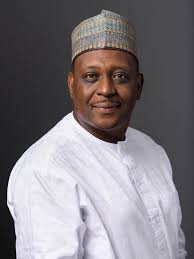
Price hike: FG plans mass purchase of essential medicines for Nigerians
To guarantee the quality, accessibility, and affordability of medications at public facilities, the Federal Government is currently pool-procuring vital medications, according to Prof. Muhammad Pate, Coordinating Minister of Health and Social Welfare.
This was stated by Pate on Thursday in Abuja during an event with the subject "Health on the house of government" in honour of Universal Health Coverage Day.
He pointed out that in order to save lives, lessen financial and physical suffering, and promote health for all Nigerians, the three-year Presidential Initiative for Unlocking the Healthcare Value Chain was introduced a year ago.
"We acknowledge that the expense of health care (services and medications) is rising, and in order to help the populace in the near future, we are in the process of pool-procuring essential medicines to ensure quality, availability, and affordability of these drugs within our public facilities.
“In the medium and long term, the local manufacturing of pharmaceutical products and commodities will help reduce costs and ensure availability within the country. This contributes to UHC’s goal of reducing the financial burden of health services,” he stated.
He also emphasised that the government is undertaking deliberate and well-considered measures that will impact Nigeria’s economy positively and reduce both physical and financial pain, which aligns with the goal of the UHC to reduce out-of-pocket health expenditure and impoverishment from healthcare spending.
“Over the last year, the prices of food, drugs, transportation, and subsistence have increased. All of which impact health seeking behaviour, health outcomes and cost of health services. There will be a cost to achieve the plans laid out. The required revenue must be raised responsibly without causing Nigerians additional pain.
all our state Governors have identified with our vision through the signing of the Compact
“As a government, we have mobilized and raised additional revenue for health. Mr. President has increased the allocation to the health sector, and development partners have committed additional external development assistance funds. As of today, We have mobilized >$3bn of additional funding (three years) through NHSRII SWAp, including $2.178bn confirmed external financing to be spent alongside government appropriation between 2024 and 2026 on the health of Nigerians. This will enable government and development partners to spend more while individual out-of-pocket expenditure is reduced,” he highlighted.
He further said the theme of the 2024 UHC is a reminder that the government must assume a more significant role by increasing its own spending, stewardship, and leadership, thereby shifting the burden from the household, as no other stakeholder is better placed to do this.
He stated that President Bola Tinubu has continued to expand healthcare coverage to Nigerians and transfer costs from individuals to the government in pursuance of his administration’s goal within the Nigeria Health Sector Renewal Investment Initiative.
He said that the administration has increased the number of lives enrolled in Health Insurance by 14 per cent as of Q3 of 2024.
“Mr. President and our governors recognise that indigent and vulnerable members of our society cannot afford to pay health insurance premiums. This is why the Federal Government established the basic healthcare provision fund and the vulnerable group funds. Through the BHCPF, ₦45.9bn has been disbursed through direct financing to facilities already this year. The Equity funds by State Governments support care for its indigenes who are most in need. These funds complement the social sector interventions targeting these groups.
"We have assisted the 36 states +FCT in creating their Annual Operational Plans through the SWAp Coordinating Office. For the first time, states have finished their AOP ahead of the fiscal year. States' AOPs were created with the sector's top priorities in mind. This will assist states in matching their resources to the nation's and their states' top health objectives.
"As a proactive government, Mr. President has instructed us to intentionally buy health insurance for target people whose premiums are high because of pre-existing disease morbidity. These include funding to establish cancer treatment facilities across the nation and women who experience vesicovaginal fistula. We have successfully repaired 879 obstetric fistulas in 19 centres nationwide as of October 2024, with a goal of 2,500 before the year is out.
"Our women's dignity and quality of life have been restored as a result. The Tinubu administration wants to provide our kids this kind of healthcare system. One that is resilient and takes care of everyone, regardless of socioeconomic status," he continued.





